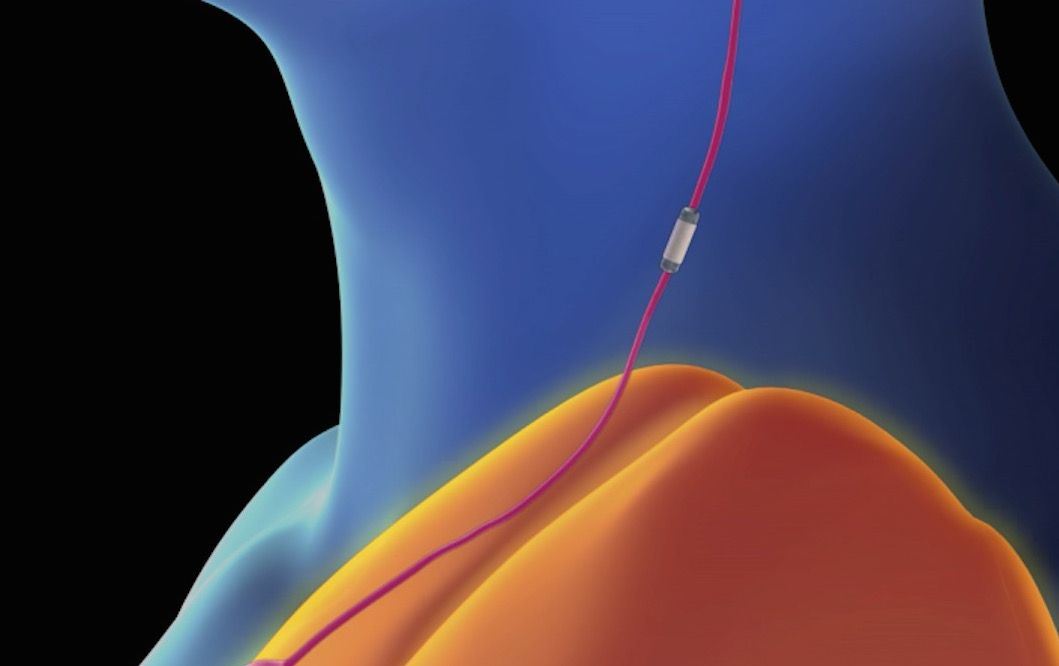Vagus Nerve Stimulation Fights Rheumatoid Arthritis
Surgically implanted bioelectronic devices may one day treat inflammatory conditions with electrical nerve stimulation

Though chronic inflammation occurs all over the body, a team of researchers suspected that the problem might actually originate in the brain. To test this, the researchers, funded by the Feinstein Institute for Medical Research, surgically implanted a stimulator that sent pulses of electricity into the vagus nerve, the superhighway of the nervous system.
By electrically stimulating nerve fibers that extend from the brain to the spleen, the researchers successfully treated a small group of patients with rheumatoid arthritis.
The stimulator sent pulses every day for a little over a month. The pulses inhibited the body’s production of certain cytokines, molecules that help regulate immune cells and can cause inflammation. The experimental trial significantly improved arthritis symptoms in the patients in the study, several of whom hadn’t responded to any other available treatment.
This discovery could potentially open up a new landscape of bioelectronic medicines for inflammatory diseases, including Crohn’s, Parkinson’s, and Alzheimer’s, replacing pharmaceutical drugs with electricity.
Read more: Scientists Discover How Vagus Nerve Stimulation Treats Rheumatoid Arthritis